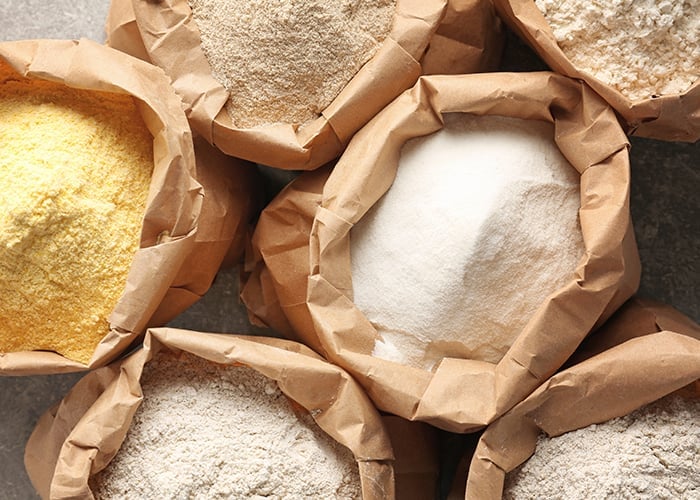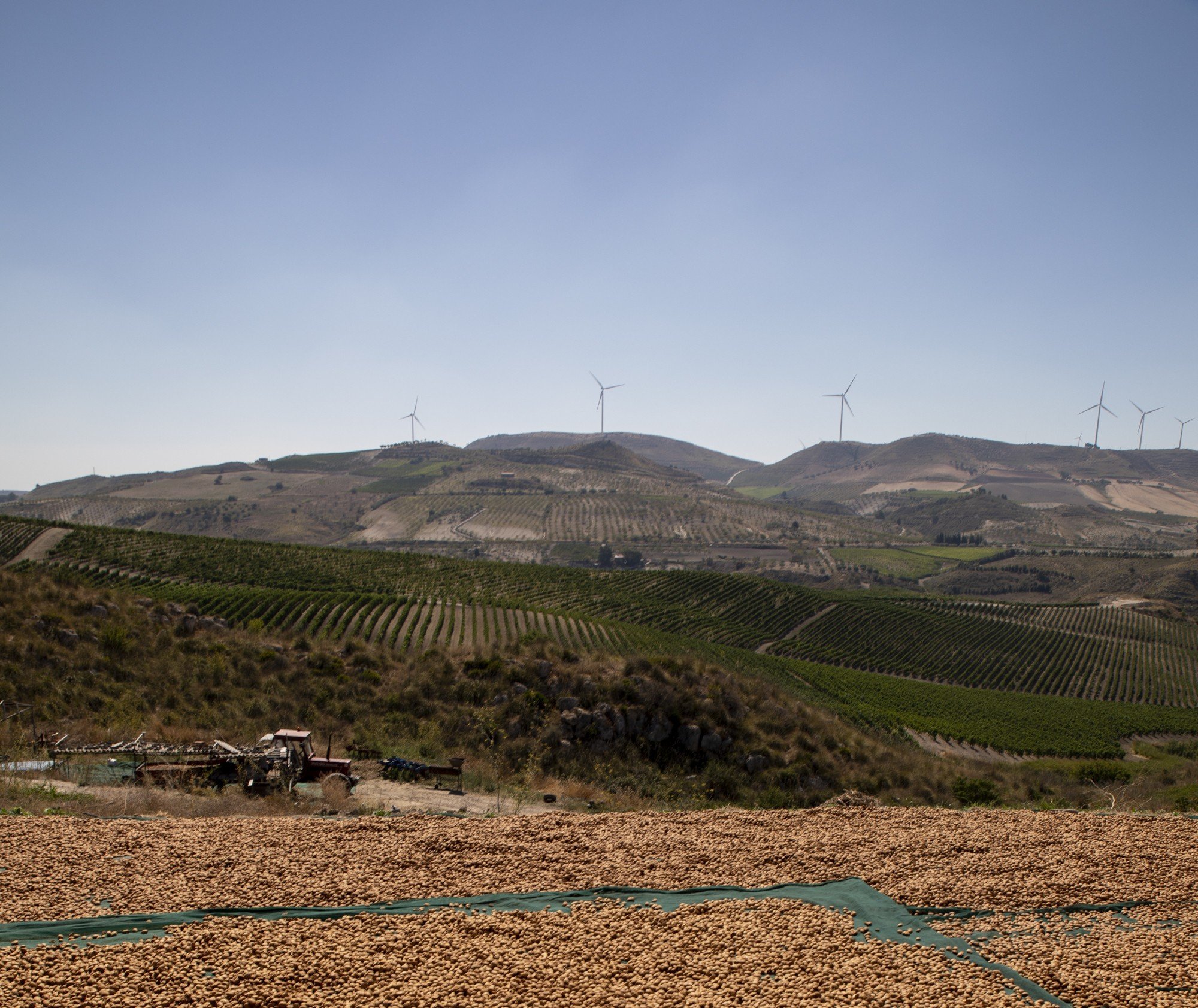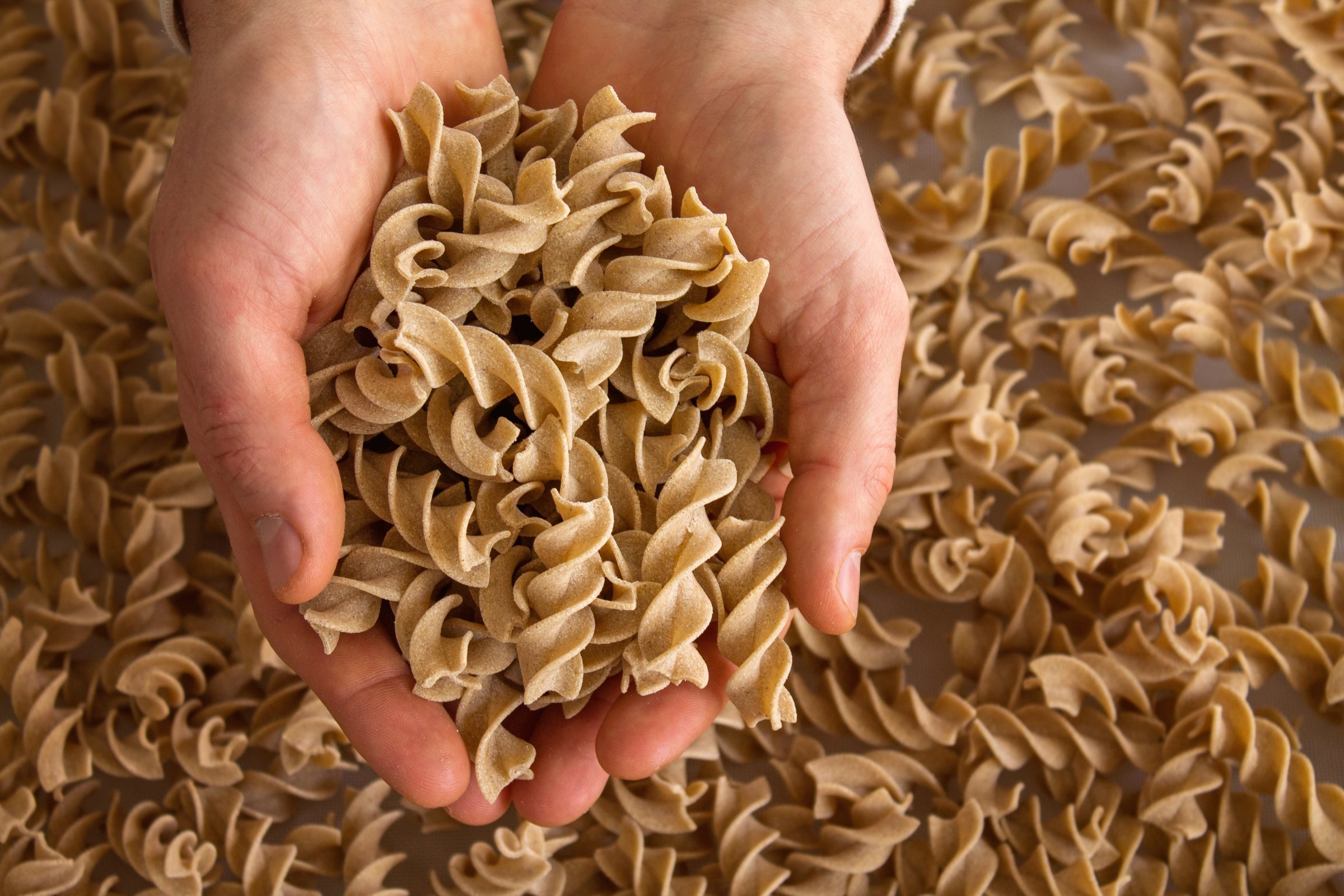
Kronos: the wheat that never breaks
Kronos durum-wheat semolina originates from a precious Desert Durum variety. Today it is grown in Italy, especially across Puglia, Marche and Emilia-Romagna, using organic and sustainable farming methods. Its strength lies entirely in the gluten: compact, elastic, capable of giving pasta that famous 'bite' Italians recognise at first bite. And then there’s the color: a deep, natural yellow that makes the pasta look vibrant at first glance.
Perciasacchi: the ancient wheat that looks to the future
Perciasacchi is a Sicilian, ancient and organic grain, stone-milled as in the old days. It’s nicknamed 'grain juice' because it preserves all of its integrity, without refinements. 2024 was a generous year: this flour reached a protein content of 18%, an exceptionally high figure. Rich in gluten but more digestible, it does not cause blood-sugar spikes and celebrates the beauty of a natural balance. What makes it even more special is the way it is grown and processed: solar energy instead of fossil fuels, three-year crop rotations, meticulous care of the grain. A true pact of trust between those who sow and those who knead.
Why we love it so much
Because behind a plate of pasta there isn’t just a shape to choose from, or a sauce to pair with. There is a grain that is respected, a supply chain that avoids waste, and a quality you can feel in every bite. Kronos and Perciasacchi are two different ways of telling the same story: that pasta can be delicious, healthy, and sustainable at the same time.

Our producers: a matter of trust
Behind these flours are people, not just fields and mills.
Molino Grassi preserves and produces Kronos wheat. Always committed to research and sustainability, it cultivates this organic semolina in Italy using methods that respect the soil and natural rotations. No imports, only a short, controlled supply chain, yielding a result that speaks of excellence and responsibility.
Molini del Ponte, in the heart of Sicily, takes care of Perciasacchi. Here tradition meets innovation: natural stone mills dating back to the nineteenth century, solar energy instead of fossil fuels, a close relationship with the farm that supplies the wheat. A transparent and clean supply chain, where every grain has a name and a story.
